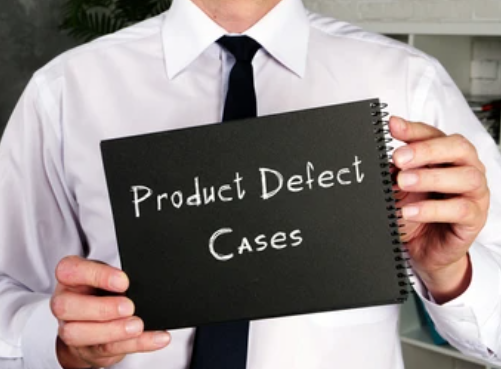Information on Defective Products’ Cases
Information on Defective Products’ Cases
Defective products can cause significant harm and pose risks to consumer safety. When individuals are injured or suffer damages due to a defective product, they may have the right to pursue legal action against the responsible parties. Here's some elaboration on information related to defective products' cases:
Understanding product defects:
There are generally three types of defects that can lead to product liability claims: design defects, manufacturing defects, and marketing defects (including inadequate warnings or instructions). Design defects refer to flaws in the product's design that make it inherently unsafe. Manufacturing defects occur during the production process and result in individual products being flawed or dangerous. Marketing defects involve failures in providing sufficient warnings or instructions about potential risks associated with the product's use.
Product liability laws:
Product liability laws vary across jurisdictions, but they generally hold manufacturers, distributors, suppliers, and retailers responsible for defective products. These laws establish the legal framework for individuals to seek compensation for injuries, medical expenses, lost wages, pain and suffering, and other damages resulting from a defective product.
Establishing liability:
To pursue a successful defective product case, it is necessary to establish liability. This involves proving that the product was defective, the defect caused the injury or damages, and the injured party was using the product as intended or in a reasonably foreseeable manner. Depending on the jurisdiction, various legal theories may apply, such as negligence, strict liability, or breach of warranty.
Gathering evidence:
Building a strong case requires gathering evidence to support the claims. This can include product samples, documentation of the defect, medical records, expert opinions, witness testimonies, and any other relevant documentation that demonstrates the defect's existence and the resulting harm.
Identifying responsible parties:
In defective product cases, multiple parties can potentially be held liable, including the manufacturer, designer, distributor, retailer, and even component part suppliers. It is important to identify all parties involved in the product's chain of distribution to ensure appropriate legal action is taken against each responsible entity.
Class action lawsuits:
In situations where a defective product has caused harm to numerous individuals, a class action lawsuit may be appropriate. Class actions allow a group of plaintiffs with similar claims to collectively pursue legal action against the responsible parties. This can provide efficiency and strength in numbers when seeking compensation for damages.
Product recalls:
In some cases, a defect in a product may be identified before it causes harm to consumers. In such instances, the manufacturer or relevant authorities may issue a product recall to remove the defective product from the market and mitigate potential harm. If you have suffered injuries or damages from a recalled product, you may still have legal recourse and should consult with an attorney to explore your options.
Statutes of limitations:
It is important to be aware of the statutes of limitations that apply to defective product cases. These statutes set the time limit within which a lawsuit must be filed after the discovery of the defect or the occurrence of the injury. Failing to file within the specified time frame may result in the loss of the right to seek compensation.
Seeking legal representation:
Given the complexities involved in defective product cases, it is crucial to seek the guidance and representation of an experienced personal injury attorney who specializes in product liability. They can assess the circumstances of your case, determine the applicable legal theories, gather evidence, navigate the legal process, negotiate with the opposing party, and advocate for your rights and interests.
Potential compensation:
Successful defective product cases can result in various forms of compensation, including medical expenses, lost wages, pain and suffering, emotional distress, disability or disfigurement, property damage, and in some cases, punitive damages meant to punish the responsible party for their negligence or misconduct.
If you have been injured or suffered damages due to a defective product, it is important to consult with a qualified attorney who can evaluate your case, provide personalized guidance, and advocate for your rights throughout the legal process. They can help you understand the specific laws applicable in your jurisdiction and work towards securing the compensation you deserve















No comments